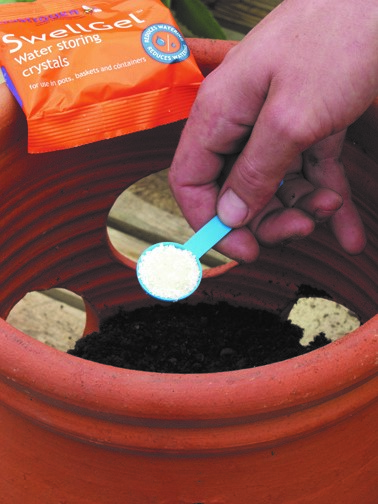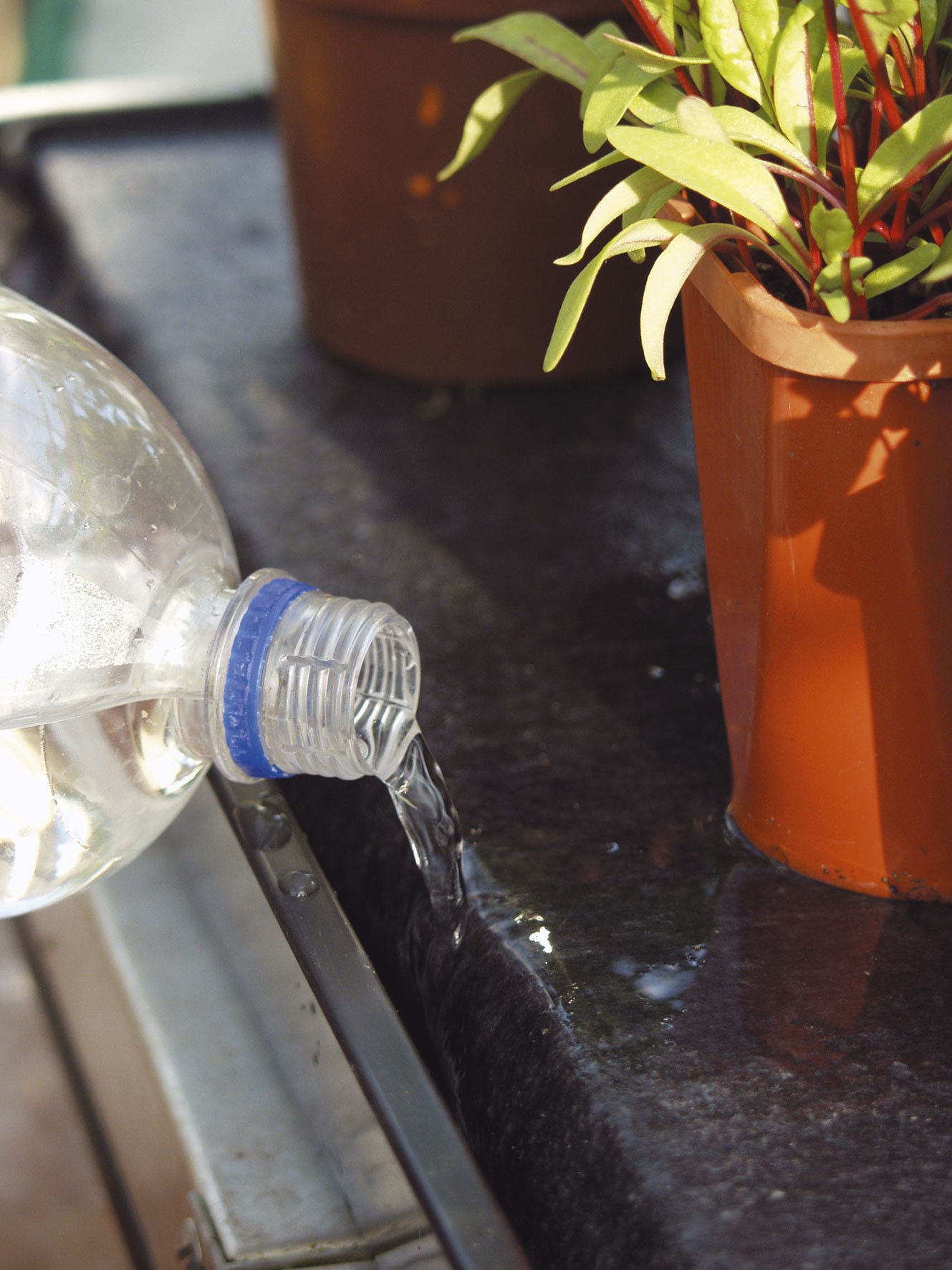
Jean Vernon defends gardeners against the summertime accusation of wasting water
We’ve had a lovely spell of hot weather this summer, which in some areas has led to a hosepipe ban and as usual the finger of blame, is pointed at the gardener.
Well I beg to differ. I disagree strongly and I want to put the record straight once and for all. Gardeners and I mean real gardeners do NOT waste water.
Real gardeners
- Gardeners know the value of this precious commodity.
- Gardeners prefer to water their precious plants and gardens (when necessary) with natural rainwater. IT’s better for the platns, it’s better for the soil and it’s better for the environment.
- Real gardeners know that when a drought strikes watering plants is a risky business because it usually just moistens the top layer of soil encouraging roots to grow towards the surface where they will dry out quickly. In fact it is far better to first not water established plants at all unless they are showing signs of stress and instead of watering superficially daily a really good soaking once a week is far more effective.
- Real gardeners know that when an established lawn goes brown in the drought that once the first rain falls it will quickly recover.
- Real gardeners understand that even if the top layer of soil is bone dry that moisture will remain in the ground further down and that most plants can endure a few weeks of drought with no problem.
- Real gardeners move their containers out of the full sun. They apply generous layers of mulch in spring before summer and while the soil is still moist to not only protect the soil surface from the sun, but to preserve soil moisture and suppress weeds.
- Plant enthusiasts understand that many of our garden plants hail from far distant shores and that some of them, those that would naturally live in a dry, arid climate are better at thriving in a hot summer than others. These gardeners recognise the signs that a plant is suited to a warmer clime by its silvery leaves, succulent leaves, leathery leaves or spiny leaves, all of which are designed to reduce water loss at the leaf surface and preserve the moisture within the plant.
- Real gardeners understand that the water is an essential to life and that plants growing in containers have restricted access. These plants are totally dependent on the compost in which they grow for their nutrients, stability and water. If this small amount of growing media dries out, these plants need it replenishing fast. Experienced gardeners will use water-holding granules, compost containing organic matter that holds moisture in the soil, and non-porous containers that won’t wick the moisture from the compost to the surface where it evaporates.
- Real gardeners utilise watering technology, timed devices, watering trays and special spray nozzles to water their plants out of the heat of the day to make the best use of the water that they employ.
People with gardens

So my blood boils when I read, see and hear that gardeners are wasting water when there is a drought, because it’s not gardeners wasting the water, it is people with gardens who need support, advice and education about growing and caring for their plants and gardens and that is our job and the job of the media in general. So next time you see someone using a sprinkler on their lawn in the middle of the day, find a way to engage with them, talk to them and help them to understand that the best way to keep their lawn looking good is to feed it properly so that it forms a good strong root system and then leave it alone. Or better still let some of it grow a bit longer so that it flowers, needs less mowing and will support some of our wildlife and especially our pollinators that are really struggling to find food.


